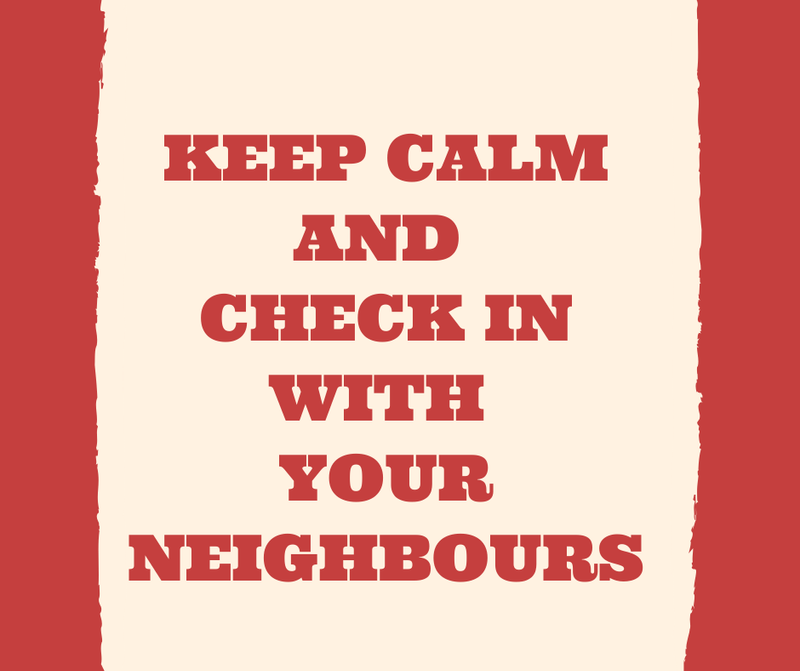Keep calm and check in with your neighbours
A few sage words from our resident science communicator, Helen Jack.
If you’ve been anywhere near the media lately you might have caught a dose of Coronavirus freakoutitis. That’s understandable – this can be a bit of a scary topic, and it is ok to be scared of things that are scary. Or you may be wondering what all the fuss is about – many people only get mild symptoms. That’s true, but for some people, especially those over 70, it can be life threatening and you don’t want to be the one who passed it on. Good thing we live in such a caring community then huh?
Let’s take a minute to calm the farm, sit down with a cuppa and look at the things we can do ourselves to reduce our chances of getting sick or passing it on – there are lots of them!
Number one best thing: Wash your hands often. The virus gets in through our eyes, nose or mouth, generally via our hands, which have picked it up off something (the virus can live for up to three days on metal and plastic surfaces). Soap kills viruses, so washing your hands properly – getting into all the nooks and crannies for at least 20 seconds, then rinsing and making sure your hands are thoroughly dry (not damp) – is the most effective thing you can do.
Try not to touch your face with your hands. Difficult, but the less you do it the better!
Sneeze or cough into your elbow, not into your hand – you are not that likely to rub your elbow on stuff and spread germs.
If you are sick – if you have a runny nose, sneeze, cough or fever – stay home. If you feel you need to go to the doctor or hospital please call ahead first, do not just turn up. They may refuse to see you if you do.
Face masks? Sure, if you are sick and sneezing or coughing a face mask is a good idea to protect others. Otherwise they are fairly useless at protecting you from the virus and can even give you a false sense of security and make you less cautious.
Now’s a really good time to check on neighbours and to make sure you have each other’s’ phone numbers – we should do this anyway! We need to look after ourselves as a community and that means checking in on each other and maybe even leaving food or medicine on the doorstep if neighbours or friends do get sick.
So it isn’t time to panic, but it is time to be careful and to think about what we might do as households and a community if schools and workplaces have to close for a while.
If you want up-to-date information, without the hype, check out:
Other reliable sources of useful information include:
Anything from University of Auckland microbiologist Dr Siouxsie Wiles.
She even has a pandemic plan you can look at!
Safe Travel: https://safetravel.govt.nz/covid-19-coronavirus#overlay-context=covid-19-coronavirus
Interactive map from John Hopkins University - https://www.arcgis.com/apps/opsdashboard/index.html#/bda7594740fd40299423467b48e9ecf6
Nanogirl’s video for kids - https://www.youtube.com/watch?v=2eqhw6yZk-c
Nanogirl’s lesson plan for teachers and parents - https://www.nanogirllive.co.nz/coronavirus-lesson-plan
And for a bit of fun, the handwashing song lyrics generator - https://washyourlyrics.com/
And remember, if you hear or read something that doesn’t sound quite right, check with one of these sources whether it is true before passing it on. Wrong information really doesn’t help!


